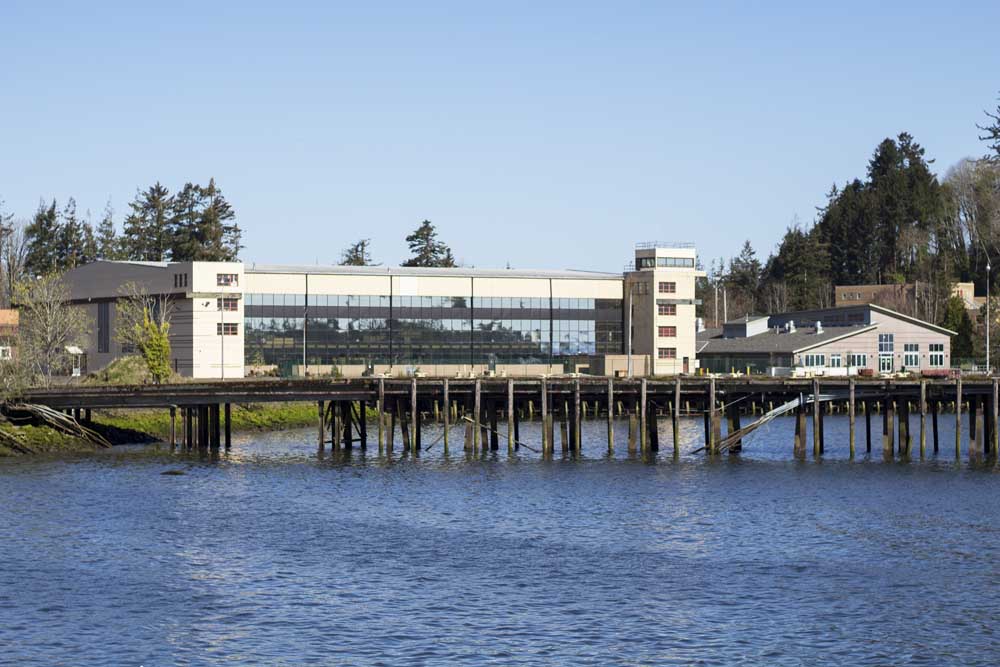Progressive politics must encompass deep respect for working people
Published 10:16 am Tuesday, August 15, 2017
Do you ever wonder what your role would be in a post-apocalyptic world? I do.
Why? Because I have very few real-world skills. I can dissect a piece of writing and produce a paper pretty quickly, but would books even still exist?
I can write a budget, but you don’t need budgets in barter deals.
I could bear and rear children which — while noble in any circumstance — is not a path that I am inclined to follow in either scenario.
One thing I do know is that my education would be nearly useless, but my dad’s 35 years as a logger would be invaluable — even just taking into account his knowledge of the surrounding hills and logging roads. A mechanic may not have cars to work on, but those skills are transferable to machinery in general. The same for fishermen, chefs, oyster farmers, and construction workers. They can do something tangible.
But it really shouldn’t take an apocalypse for the world to realize the value of workers who make the world go ‘round.
Our middle class is shrinking so much that it may no longer be the class majority in the United States. In the whole decade of the 1980s, the middle class was booming. My dad was (is) a logger and my family lived fairly well. My mother was a stay-at-home mom who had three kids, which is a scenario that is almost unheard of at this point.
In 1985, Alabama released a song called “40 Hour Week (For a Livin’)”. Some of the lyrics were, “Hello Northwest (Timber Workers) let me thank you for your time. You work a 40 hour week for a livin’, just to send it on down the line.”
Oh, you don’t remember that line? That’s because it wasn’t actually in there. But it should have been.
The lyrics do, however, thank steel mill workers, auto workers, and “the one who swings the hammer, driving home the nail, or the one behind the counter, ringing up the sale. For everyone who works behind the scenes.”
There was a push throughout my childhood and adolescence to avoid all of these things and for everyone to get a college degree. This means, of course, that technical skills are falling by the wayside. The massive amount of student debt being created is detrimental to 20-somethings who feel like they have no choice but to bury themselves with it.
When we are making mortgage-size student loan payments monthly and living with four roommates to make ends meet, the odds of taking on a real mortgage is slim. When we can’t get quality paying jobs with benefits, when we’re paying another $400 a month for health insurance, there isn’t much wiggle room.
And on top of that, even though all of us on the left would like to deny it, many liberals see blue-collar workers as less-than, which contributed significantly to the election of our current president. The “Liberal Elites” are real. When I told a Seattleite that my boyfriend was a logger, he asked snarkily, “Is he smart?”
“Yeah,” I said, “or people die.”
We all know that the Zeitgeist is shifting in ways that are not necessarily the way I’d like the world to go, but the shift toward the power of the middle-class is positive shrapnel. The Democrats have taken notice of us small-town progressives precisely because the election turned out the way that it did.
The “Right side” has taken power back, and the Left needs to not only include, but prioritize the middle-class on the list of groups they’re fighting for. Yes, racism, sexism, transphobia, and xenophobia are real and they should all be fought against. But classism is real too.
Maybe the American Dream is real and maybe it isn’t, but there’s no denying that our country was built on the backs of the working class.
‘Even though all of us on the left would like to deny it, many liberals see blue-collar workers as less-than, which contributed significantly to the election of our current president.’





